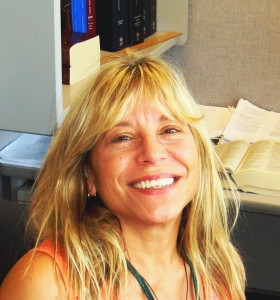Some Cleveland-based musicians specializing in the horror genre have unleashed a monster-sized lawsuit against some evildoers. On Halloween 2011, the recording artists Midnight Syndicate and their company Entity Production, through their attorney Marc Avsec (a musician himself) filed a $2.1 million copyright infringement suit against Michigan bad boy rappers Insane Clown Posse and their company, Psychopathic Records. Judge Solomon Oliver of the U.S. District Court for the Northern District of Ohio in Cleveland will preside over the case, which is expected to begin after the first of the year. That is, if the case even gets to trial, in view of the sublime complaint crafted by Avsec. The filing, in twenty pages, sets out every jurisdictional requirement and answers every possible question in a copyright infringement case – what was taken, who did it, who owns it, and what it is worth. Copyright registration certificate numbers are listed for all the seven appropriated compositions and sound recordings made from them. Information is given in several counts about the popularity of Midnight Syndicate’s Halloween/horror themed songs, their distribution and sales worldwide of 500,000 copies, and their use in theme parks, television shows, films and video games. Against this in other counts is the research showing the Insane Clown Posse (ICP) catalogue has sold 6.5 million units worldwide and reaps $10 million per year in revenue from exploitation of their songs and related merchandise.
Although the Midnight Syndicate music samples were used in bands other than ICP itself, (like “Twiztid”, and “Dark Lotus”) the bands are part of ICP’s companies and are controlled by Psychopathic Records and the principals of that company and Insane Clown Posse LLC, Joseph Utsler aka Shaggy 2 Dope, and Joseph Bruce, aka Violent J. The complaint leaves no stone unturned, listing the trademark registration for “Insane Clown Posse®” in several different classes for sound recordings, record production services and entertainment services including musical performances. The other bands on ICP’s label are also marketed under ICP’s trademark. In meticulous but straightforward detail, the complaint alleges the harm caused to the plaintiff Entity Production, the control, supervision and ultimate responsibility of the principals for the infringement, and how they profited from the exploitation of the Midnight Syndicate samples. Direct and vicarious liability is alleged with the statement that “Bruce and Utsler personally sampled or directed the sampling of Midnight Syndicate Recordings.” A copy of the cease and desist letter that Entity Production sent to Psychopathic Records in October of 2009 is attached to the complaint, detailing the specific infringements of Midnight Syndicate recordings by the ICP groups. The letter was ignored by the “wicked clowns”, leading to this lawsuit. Illustrating the defendants’ utter defiance of the claims of infringement, ICP again sampled a Midnight Syndicate recording in the summer of 2011, leading to the lawsuit’s claim that the infringement was malicious and intentional.
The allegations are that ICP sampled substantial portions of Midnight Syndicate recordings and used them in their original form with vocal overdubbing and multiple looping, essentially making them into the musical bed for seven of ICP’s and the other related band’s songs. One writer who listened and compared the original to the infringing songs stated that it sounded like the sample was lifted straight from the Midnight Syndicate song. The complaint claims in count 59 that ““Mirror” is basically Midnight Syndicate’s “Haunted Nursery” recording and musical composition with Twiztid’s vocals overdubbed.” Under section 114 of the Copyright Act, which grants an exclusive right to the copyright owner to reproduce and make derivative versions of the copyrighted work, infringement is found when there is physical copying of a recording by digital sampling. By the precedent set in a 2005 case from the 6th Circuit Court of Appeals, Bridgeport Music v. Dimension Films, no tests of substantial similarity or de minimis inquiry is required when there is unauthorized sampling, no matter how small the sample. Bridgeport set a new rule that the copyright owner is the only one who may sample his own copyrighted works; the court in that case admonishes prospective samplers to get a license from the owner or don’t sample, also noting that licensing of samples is now standard practice in the recording industry. There are a number of clearinghouses for licensing music samples as a result of actual and threatened litigation in the area of digital sampling infringement, which are authorized by member copyright owners to clear samples for use on albums according to an agreed upon fee structure. However the court in Bridgeport also stated that there will still be artists and companies that choose to sample and take their chances, and six years after that case, Insane Clown Posse have been haled into court for doing just that.
Entity Production’s case may not make it to trial, either because of a settlement, in view of the overwhelming evidence of intentional infringement, or because it can be decided simply on the information contained in the complaint, on summary judgment. I don’t believe there is any believable defense that ICP can put forth to Midnight Syndicate’s claims of copyright infringement, and we will soon find out if they want to take their chances in a trial, which would be more costly than a settlement. Either way it would be a nice victory for the underdogs, two niche recording artists from the Cleveland area, against two million dollar mainstream performers and merchandise salesmen from Michigan.
© 2012 Mary Ellen Tomazic
